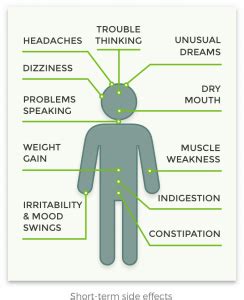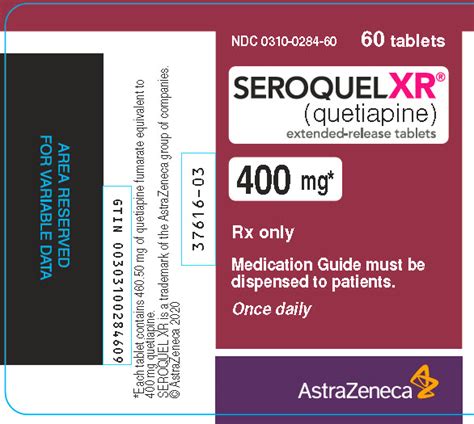Intro
Discover 5 Seroquel side effects, including weight gain, drowsiness, and mood swings, and learn how to manage these psychiatric medication effects, quetiapine interactions, and bipolar treatment implications.
The importance of understanding the potential side effects of medications cannot be overstated, especially when it comes to psychiatric drugs like Seroquel. Seroquel, also known by its generic name quetiapine, is an atypical antipsychotic used to treat a variety of conditions, including schizophrenia, bipolar disorder, and major depressive disorder. While it can be an effective treatment for many patients, it's crucial for individuals to be aware of the possible side effects they might experience. This knowledge can help patients and their healthcare providers make informed decisions about their treatment plans.
Seroquel, like other medications in its class, can have a range of side effects, some of which are common and mild, while others are less common but more severe. Understanding these side effects can also help individuals recognize when they might need to seek medical attention. The side effects of Seroquel can vary widely from person to person, and what might be a minor issue for one individual could be a significant problem for another. Factors such as dosage, age, and the presence of other health conditions can influence the likelihood and severity of side effects.
For many patients, the benefits of taking Seroquel outweigh the risks, especially when it comes to managing severe psychiatric conditions. However, being informed about potential side effects is key to ensuring safe and effective treatment. This includes not only understanding the physical side effects but also being aware of any potential psychological or emotional changes. By being proactive and communicative with their healthcare providers, patients can minimize their risk of experiencing severe side effects and maximize the benefits of their treatment.
Introduction to Seroquel Side Effects

Seroquel's side effect profile is broad, reflecting its complex mechanism of action, which involves multiple neurotransmitter systems in the brain. Common side effects include drowsiness, dry mouth, dizziness, constipation, and weight gain. These effects are often managed through dosage adjustments or the use of additional medications to mitigate them. However, some side effects can be more serious and require immediate medical attention, such as allergic reactions, severe dizziness, or signs of neuroleptic malignant syndrome, a rare but life-threatening condition.
Common Seroquel Side Effects
Some of the most frequently reported side effects of Seroquel include: - Sedation and drowsiness - Dry mouth - Dizziness or lightheadedness - Constipation - Weight gain - Increased appetite - Fatigue - Headache - Nausea or vomiting These common side effects can often be managed with lifestyle adjustments or by adjusting the dosage under the guidance of a healthcare provider.Less Common but Serious Side Effects

While less common, some side effects of Seroquel can be serious and potentially life-threatening. These include:
- Increased risk of stroke and transient ischemic attack in elderly patients with dementia-related psychosis
- Neuroleptic malignant syndrome, a condition characterized by fever, stiff muscles, and changes in mental status
- Tardive dyskinesia, a condition causing involuntary, repetitive body movements
- High blood sugar and diabetes
- Changes in cholesterol and triglyceride levels
- Low white blood cell count
- Seizures
- Increased risk of suicidal thoughts and behaviors in children, adolescents, and young adults
Managing and Minimizing Side Effects
To minimize the risk of side effects, patients should closely follow their prescribed treatment plan and maintain open communication with their healthcare provider. This includes reporting any changes in their condition, new symptoms, or concerns about side effects. Lifestyle modifications, such as maintaining a healthy diet, staying hydrated, and engaging in regular physical activity, can also help manage some side effects, like weight gain and constipation.Special Considerations and Warnings

Certain populations may be at higher risk for specific side effects or may require special monitoring. For example:
- Elderly patients, especially those with dementia-related psychosis, are at an increased risk of stroke and transient ischemic attack.
- Children and adolescents are at a higher risk for suicidal thoughts and behaviors.
- Patients with a history of cardiovascular disease or stroke should be monitored for changes in blood pressure and heart rate.
- Individuals with diabetes or at risk for diabetes should have their blood sugar levels monitored regularly.
Patient Education and Support
Patient education plays a critical role in the safe use of Seroquel. Patients should be informed about the potential benefits and risks of the medication, including the signs of serious side effects that require immediate medical attention. Support from healthcare providers, family, and friends can also help individuals cope with side effects and adhere to their treatment plans.Conclusion and Next Steps

In conclusion, while Seroquel can be an effective treatment for various psychiatric conditions, it's essential for patients to be aware of its potential side effects. By understanding these effects and maintaining close communication with their healthcare providers, individuals can minimize risks and maximize the benefits of their treatment. If you or someone you know is taking Seroquel and experiencing side effects, it's crucial to discuss these concerns with a healthcare provider.
Final Thoughts on Seroquel Treatment
The decision to start or continue treatment with Seroquel should be made after careful consideration of the potential benefits and risks. For many patients, the therapeutic effects of Seroquel in managing their psychiatric condition outweigh the risks associated with its use. However, vigilance and open communication with healthcare providers are key to ensuring safe and effective treatment.What are the most common side effects of Seroquel?
+The most common side effects of Seroquel include sedation, dry mouth, dizziness, constipation, and weight gain.
Can Seroquel cause serious side effects?
+Yes, Seroquel can cause serious side effects, including increased risk of stroke, neuroleptic malignant syndrome, and high blood sugar.
How can I minimize the risk of side effects while taking Seroquel?
+To minimize the risk of side effects, follow your prescribed treatment plan, maintain a healthy lifestyle, and communicate openly with your healthcare provider about any concerns or new symptoms.
We invite you to share your thoughts and experiences with Seroquel in the comments below. Your insights can help others better understand the potential benefits and risks of this medication. If you found this article informative, please consider sharing it with others who might benefit from this information.
